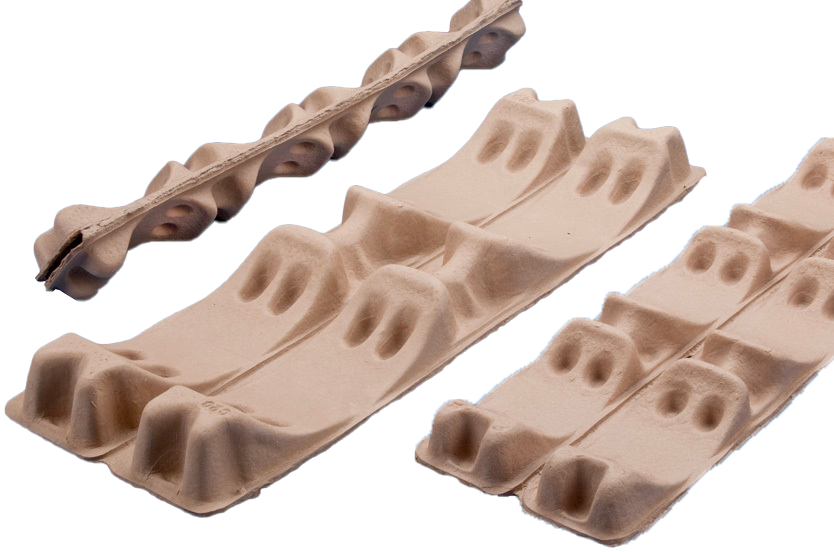Are Molded Pulp Packaging Roll Cradles Suitable for Fragile Items?

When it comes to shipping fragile items, ensuring they arrive intact is a top priority. But are molded pulp packaging roll cradles suitable for fragile items? This question is crucial for businesses looking to balance sustainability with effective protection. Let’s explore how molded pulp roll cradles measure up in terms of safety, durability, and eco-friendliness.
Molded Pulp Roll Cradles
Molded pulp packaging roll cradles are designed to be incredibly sturdy. Made from recycled paper and cardboard, these cradles are molded into shapes that perfectly fit and support cylindrical objects. This provides a snug fit, minimizing movement during transit and significantly reducing the risk of damage.
Moreover, the material itself is highly resilient. Molded pulp can absorb shocks and impacts that occur during shipping, acting as a cushion for the fragile items it encases. This shock-absorbing quality is particularly important for items that are sensitive to vibrations and sudden jolts.
Eco-Friendly and Sustainable Protection
One of the standout benefits of molded pulp roll cradles is their eco-friendliness. Traditional packaging materials like plastic and foam are notorious for their environmental impact. They are often not recyclable and can take hundreds of years to decompose.
In contrast, molded pulp is made from renewable resources and is fully biodegradable. After serving its purpose, it can be easily recycled or composted, making it a sustainable choice for environmentally conscious businesses. By choosing molded pulp packaging, companies can significantly reduce their carbon footprint.
Customization for Specific Needs
Another advantage of molded pulp roll cradles is their versatility and customization options. They can be tailored to fit the exact dimensions and shapes of the items they are designed to protect. This means businesses can order custom cradles that provide optimal support and cushioning for their specific products.
Custom molded pulp cradles ensure that even the most delicate items are securely held in place, reducing the likelihood of damage. Whether it's delicate glassware, sensitive electronic components, or intricate machinery parts, customized molded pulp roll cradles can offer the perfect solution.
Comparing Molded Pulp to Traditional Materials
When comparing molded pulp roll cradles to traditional materials like plastic and foam, several factors come into play:
- Environmental Impact: Molded pulp is biodegradable and recyclable, while plastic and foam are not.
- Cost: Molded pulp can be more cost-effective due to its lower material and production costs.
- Protection: Both molded pulp and traditional materials offer strong protection, but molded pulp has the added benefit of being eco-friendly.
Real-World Applications and Success Stories
Many companies have successfully switched to molded pulp roll cradles for their packaging needs. For example, electronics manufacturers have found that molded pulp cradles provide excellent protection for their fragile components. The snug fit and cushioning properties ensure that delicate items like computer chips and circuit boards arrive safely at their destinations.
Similarly, the wine industry uses molded pulp packaging to protect bottles during shipping. The roll cradles prevent movement and absorb shocks, ensuring that the wine arrives in perfect condition.
Final Thoughts
So, are molded pulp packaging roll cradles suitable for fragile items? The answer is a resounding yes. By opting for molded pulp packaging, businesses can safeguard their products while also making a positive impact on the environment. The next time you need to ship fragile items, consider the advantages of molded pulp roll cradles and make the sustainable choice.
If you need molded pulp products for shipping that are in stock and ready to ship, please see our Ecom partner www.wineshippingboxes.com for options.




